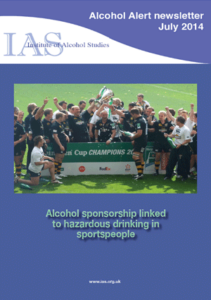In this month’s alert
Editorial – July 2014
Welcome to the July edition of Alcohol Alert, the Institute of Alcohol Studies newsletter, covering the latest updates on UK alcohol policy matters. In this issue, Jackie Ballard, the newly appointed Chief Executive of Alcohol Concern, talks about the drinking culture at Westminster during her time as an MP and looks ahead to the future of alcohol policy. Other articles include: researchers discovering a link between sports sponsorship and hazardous drinking; more alcohol pledges added to the Responsibility Deal; a study revealing no heart health benefits from drinking in moderation; nurses debating who should bear the costs of alcohol-related ill health; and survey data on binge drinking from Ireland.
Please click on the article titles to read them. We hope you enjoy this edition.
Alcohol Concern appoint former Liberal Democrat MP as Chief Executive
Alcohol Concern has appointed former LibDem MP for Taunton in Somerset, Jackie Ballard, as its new Chief Executive from 7th July 2014.
She replaces Eric Appleby who had been acting in an interim capacity. In Parliament, Jackie Ballard was one of the leaders of the campaign to outlaw fox hunting. After losing her seat she went on to become CEO of the RSPCA, and also had CEO roles with Action on Hearing Loss and Womankind Worldwide.
In an interview for this edition of Alcohol Alert (listen via media player below) Jackie spoke about the strong culture of drinking in Westminster during her time as an MP and the impact it had on the behaviour of some of her fellow colleagues, some of which she describes as “disgraceful”.
Jackie also discussed her intentions to develop Alcohol Concern’s operations, praising the annual Dry January campaign which she aims to expand and involve more organisations, including Public Health England.
She said: “I think that Dry January is a really brilliant idea, and the early indications from the evaluation are that it made a lasting difference to those people who gave up during January… So my feeling at the moment is that we certainly want to build on Dry January. How we build on that,.. how we roll it out to get even more people involved… I think that’s the challenge we’re working on at the moment.”
Jackie also called for public health organisations to be “united” and learn lessons from the tobacco debate in lobbying for effective change, particularly in regard to how drinking affects third parties:
“It’s not just the person who’s drinking and what’s happening to their liver or their heart or whatever, it’s the impact on the family in terms of domestic violence and child abuse and it’s the impact on the emergency services and I think that’ll change the debate when that becomes widely recognised… this is not about your individual freedom to do what you like to yourself, this is about the price society is paying for that.
“I think there is a pivotal moment coming, as there was with cigarettes, and I think that for all of us who are arguing for changes, the moment is coming, and as long as we are united and as strong as we can possibly be then I think we’ll have a really good chance of changing the whole discourse. It’s changing in Scotland, and the Scottish government are doing things that are not happening at Westminster, it will change here.”
You can hear our interview with new Alcohol Concern Chief Executive Jackie Ballard, by playing the embedded media player below. Alternatively, you can listen to and/or download the podcast by clicking on the Soundcloud link.
Alcohol sponsorship linked to hazardous drinking in sportspeople
A UK study has provided further evidence that receiving sponsorship from alcohol companies is associated with higher levels of alcohol consumption in sportspeople.

The latest research of university-based sportspeople in the UK – ‘Alcohol industry sponsorship and hazardous drinking in UK university students who play sport‘ – shows that those in receipt of alcohol industry sponsorship had higher levels of drinking and an increased likelihood of hazardous consumption and alcohol dependence than those not sponsored by alcohol companies.
The new research follows on from previous studies conducted in the UK, Australia, and New Zealand. An earlier study found that Australian sportspeople sponsored by the alcohol industry were more likely to engage in binge drinking than those with no alcohol sponsor. That figure increased significantly when the sponsorship deal included free or discounted alcohol, and among those sportspeople who believed there was an obligation for them to drink the sponsor’s products or attend their establishments. Previous research showed that sponsorship by non-alcohol companies did not have the same effects on levels of alcohol consumption; higher levels of drinking related specifically to sponsorship by alcohol companies.
The new UK study was conducted in response to the 2010 House of Commons Health Select Committee report on alcohol, and the UK Government’s call for more evidence to be provided on the effects of alcohol marketing.
In terms of the policy implications of the research, author Dr Kerry O’Brien commented that there is vigorous debate in several countries over the need for bans on alcohol advertising and sponsorship, with calls for more evidence to inform these debates. They say that the new study, providing evidence that receipt of alcohol sponsorship in UK sportspeople is associated with more problematic drinking, taken together with other research showing that indirect exposure to alcohol sponsorship in sport influences children’s drinking expectancies and behaviour, and also with the high levels of hazardous drinking among university sports teams, indicates that policy makers and sports administrators should consider seriously whether the potential long-term harms outweigh the financial benefits of alcohol sponsorship.
Row over alcohol sponsorship of Commonwealth Games
The financial benefits of alcohol sponsorship have, however, already come into play in connection with the XX Commonwealth Games being held in Glasgow in July/August 2014.
A coalition of health bodies has objected to the decision of the organisers of the Games to allow two drinks companies, Heineken and The Famous Grouse, to become official sponsors. The decision followed a health impact assessment for the Games, which found the event could be used to “prevent alcohol-related problems”.
In a letter to Glasgow 2014 Chief Executive David Grevemberg, senior representatives from groups including Alcohol Focus Scotland, Children in Scotland, Scottish Health Action on Alcohol Problems, Scottish Families Affected by Alcohol and Drugs and the Stroke Association questioned the decision and asked for clarification over the extent of the branding.
They added: “The eyes of the world will be on Glasgow this summer. We believe allowing global alcohol producers free reign to advertise their products to children and young people is not in keeping with the spirit of the Commonwealth Games.”
Seven new Responsibility Deal alcohol pledges
Seven new alcohol industry pledges under the Coalition Government’s Public Health Responsibility Deal have been agreed at an ‘Alcohol Summit’ attended by representatives of the alcohol industry and four Government Ministers, led by Home Secretary, Teresa May, and Jeremy Hunt, Secretary of State for Health.
Seven new alcohol industry pledges under the Coalition Government’s Public Health Responsibility Deal have been agreed at an ‘Alcohol Summit’ attended by representatives of the alcohol industry and sponsored by four Government Ministers, led by Home Secretary, Teresa May, and Jeremy Hunt, Secretary of State for Health.
Media reports suggest that the industry agreed to the various pledges in the hope of heading off the kind of further regulation that the alcohol public health community would like to see enacted, which predictably, greeted with skepticism the announcement of the pledges. Speaking for the Alcohol Health Alliance, Professor Sir Ian Gilmore said:
“It is frustrating to see the Government continually fail to take the action that is needed to effectively tackle increasing alcohol harms in the UK.
“One person dies every single hour from alcohol-related causes. It is simply not good enough for the Government to rely on voluntary commitments from the alcohol industry, brokered behind closed doors, to deal with those problems.”
The Pledges
The series of pledges agreed include:
- Producers calling time on super-strength products in large cans
- Retailers committing to the responsible display and promotion of alcohol in shops and supermarkets; and
- Pubs and bars making sure they stock house wines below 12.5% ABV and promote lower-alcohol products to customers.
It was reported that the drinks industry will also expand partnership schemes to the Local Alcohol Action Areas, which were launched by the government in February 2014, and there will be a new initiative to address street drinking, although no details about the latter have been published to date.
In addition, initial funding of £250,000 will be provided by industry for alcohol education programmes in schools, and grants will be available to give 10,000 people a qualification that will ‘help enforce responsible drinking by 2016’.
While Ministers were extolling the value of the new pledges in reducing alcohol harm, the alcohol and public health community were united in showing a notable lack of enthusiasm for them, tempered only by the fact that the practical significance of the new pledges remains obscure. For example, it is not clear what size of can of super-strength beers and ciders will no longer be produced by those firms who sign up to this pledge. The Responsibility Deal website lists an already existing pledge to have ceased producing cans of carbonated drinks containing more than four units of alcohol by December 2014. Presumably this is the same pledge that has now been announced a second time. However, the website also provides the information that only one company has signed up to this pledge, ABInBevUK. Similarly, it is not stated what will count as ‘responsible display and promotion of alcohol’ in shops and supermarkets.
Katherine Brown, director of the IAS said:
“To date we have seen no evidence that voluntary pledges made by the drinks industry through the Responsibility Deal have reduced rates of alcohol harm, and the most recent commitments, credited by two Cabinet Ministers, do not promise to make a difference.
“For example, no action is being taken on 3 litre bottles of strong white cider that is sold for less than £3 and is fuelling rates of liver disease, crime and violence. It is vital that the Government gives proper attention to evidence based policies such as minimum unit pricing of alcohol, rather than pandering to drinks industry window dressing.”
UK supermarkets minimise price rises for the cheapest alcohol when taxes are increased
Conclusion drawn from ‘Alcohol tax pass-through across the product and price range: Do retailers treat cheap alcohol differently?‘ report.
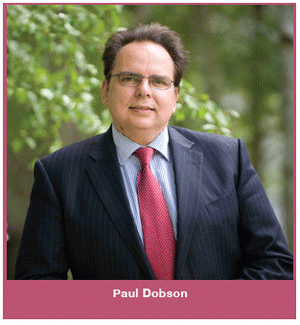 Supermarkets in the UK could be hindering efforts to reduce harmful drinking by not fully passing tax increases onto the price of the cheapest beers and spirits, according to health and business researchers. A pioneering study discovered retailers appear to respond to increases in alcohol taxes by ‘under-shifting’ their cheaper products (raising prices by up to 15% below the level implied by the tax increase) and ‘over-shifting’ their more expensive products (raising prices beyond the level implied by the tax increase).
Supermarkets in the UK could be hindering efforts to reduce harmful drinking by not fully passing tax increases onto the price of the cheapest beers and spirits, according to health and business researchers. A pioneering study discovered retailers appear to respond to increases in alcohol taxes by ‘under-shifting’ their cheaper products (raising prices by up to 15% below the level implied by the tax increase) and ‘over-shifting’ their more expensive products (raising prices beyond the level implied by the tax increase).
The research team was led by the University of Sheffield’s School of Health and Related Research (ScHARR) with business experts from the University of East Anglia and Loughborough University. Using weekly product-level supermarket prices for 254 alcohol products, the team analysed how prices changed in response to tax changes. They examined drinks sold at different price points and in four categories: beers, ciders, spirits and wines. The findings, published in the journal Addiction, showed that supermarkets responded to tax increases by subsidising prices of cheaper products. Price rises for cheaper products were up to 15% below the level expected if the tax increase had been passed on fully.
Although under-shifting affected around one in six of all product lines, these drinks account for a large proportion of total sales: approximately 68% of beer, 38% of spirits and 31% of cider sales.
The researchers say there is a likely implication for health. Previous research shows the heaviest 5% of drinkers in the UK population, classified as higher-risk drinkers according to NHS guidelines, buy 33% of all shop-bought alcohol and favour cheaper supermarket products. Subsidising cheaper alcohol when taxes are increased is likely to lead to smaller reductions in excessive alcohol consumption, and consequently smaller reductions in the harms caused by excessive alcohol than if tax rises were passed on in full.
“Socially Irresponsible”
Co-author of the study, Paul Dobson, Professor of Business Strategy and Public Policy at the University of East Anglia, commented: “Subsidising cheap alcohol might be attractive to supermarkets in their efforts to increase the number and frequency of store visits that shoppers make but is socially irresponsible when it encourages excessive consumption. It is imperative that the Government take a much closer look at how taxes and duty are applied on alcohol and consider more targeted measures to address dangerous levels of consumption of cheap alcohol.”
Last year ScHARR reported that the Government’s introduction of the ban on below cost selling, which would prevent retailers selling alcohol cheaper than the cost of the tax payable on the product, would have a negligible impact on the consumption of alcohol and related harms in comparison with a 45p minimum unit price for alcohol.
The policy practised by retailers of not passing on to consumers the full increase in alcohol taxes imposed by the Chancellor of the Exchequer is one of the reasons health advocates have urged the Government to introduce minimum unit pricing of alcohol.
Dispatches investigates the cost of cheap alcohol
Documentary exposes the hidden health costs to society of industry influence over alcohol policy.
Channel 4’s Dispatches – The Cost of Cheap Alcohol aired on Monday 30 June, exploring the industry’s influence over government policy by focussing on how increasing affordability and availability of alcohol has led to a culture of “pre-loading” among young adults, and how alcohol companies successfully “mobilised to fight off government attempts to clamp down on cheap drink”.
The programme featured a mock experiment involving the purchasing behaviour of a group of young drinkers. They were firstly asked to purchase the amount of alcohol they would typically pre-load on a night out at a local supermarket, then to repeat the activity at an off-licence selling alcohol at a floor price of 50 pence per unit. It was found that the introduction of a 50p minimum unit price would cause the group to buy roughly 30% less alcohol for the same amount of money (scroll down to watch a clip).
The results echoed findings from expert researchers Dr John Holmes (Research Fellow for the Sheffield Alcohol Research Group) and Professor Tim Stockwell (Centre for Addictions Research, University of British Columbia), who explained the benefits of minimum unit pricing as a solution to the problem of pre-loading in the UK night-time economy.
Dispatches also explored the pricing strategies of the Big Four supermarkets – Tesco, ASDA, Sainsbury’s, Morrisons – and found that they were able to sell multipacks of both their own and other branded alcohol products at a lower price than some brands of mineral water, ultimately allowing the typical British drinker to breach the recommended daily alcohol limit for as little as £1 for men and 75p for women.
The programme noted that the effects of pre-loading was increasing pressure on the nation’s health and rescue services in UK town centres, where young people would “seem intent on consuming as much as possible before they get to the pricer bars and clubs”. This was confirmed by Garry Shewan, Assistant Chief Constable for Greater Manchester Police, who claimed that for the A&E units and police services in his constabulary, “the stark reality is that… we effectively need double the number of people working nights now than we ever used to”.
The documentary also investigated how the alcohol industry had attempted to prevent the introduction of minimum unit pricing as a public health solution to the problem of alcohol misuse. Evelyn Gillan, Chief Executive of Alcohol Focus Scotland explained that, despite a law being passed by the Scottish Parliament in 2012 to introduce minimum unit pricing, the measure had yet to be implemented “because of legal action taken by the global alcohol corporations… represented by the Scotch Whisky Association (SWA)”. She also alleged that rather than defending the Scotch whisky market, the SWA was in fact protecting the interests of its members who sold cheap vodka. SWA Chief Executive David Frost defended his organisation, claiming that as a form of price fixing, minimum unit pricing is “illegal”, “ineffective”, and a “contravention of broader principles of economic law”.
The programme described how, in Westminster, the UK government put on hold plans to introduce minimum pricing after a series of private meetings with industry figures. IAS Director Katherine Brown highlighted concerns regarding the level of access the alcohol industry had to ministers in discussions on minimum unit pricing: “It’s right to discuss policy implementation with the drinks industry. However, it is not appropriate for alcohol companies to sit in the room to discuss pricing policies… There is a direct conflict of interest there, because, ultimately, the drinks industry’s first loyalty is to their profits and their shareholders, whereas the government’s first loyalty should be to the health and wellbeing of its population.”
Have a Word!
Welsh screening and brief intervention programme goes from strength to strength.
Dr Paul Jordan, Violence and Society Research Group, Cardiff University
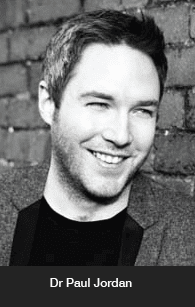 The training team of the Have a Word programme in Wales have now trained over 6,000 practitioners to deliver brief interventions to people who misuse alcohol. Brief interventions are short, structured conversations lasting around five minutes between patient and health professional and are designed to motivate patients to reduce their alcohol consumption. The intention is to prompt the patient to recognise the harm which their drinking has caused, especially the wound being treated, to review their drinking, to set themselves drinking limits, and to make and act on decisions to reduce their hazardous drinking. Timing is crucial. Brief interventions work best when there is a “teachable moment”, when a person is faced with the consequences of their actions and therefore more receptive to the suggestion of behaviour change. Nowhere is this opportunity more obvious than during suture (stitches) removal in the week following injury whilst intoxicated.
The training team of the Have a Word programme in Wales have now trained over 6,000 practitioners to deliver brief interventions to people who misuse alcohol. Brief interventions are short, structured conversations lasting around five minutes between patient and health professional and are designed to motivate patients to reduce their alcohol consumption. The intention is to prompt the patient to recognise the harm which their drinking has caused, especially the wound being treated, to review their drinking, to set themselves drinking limits, and to make and act on decisions to reduce their hazardous drinking. Timing is crucial. Brief interventions work best when there is a “teachable moment”, when a person is faced with the consequences of their actions and therefore more receptive to the suggestion of behaviour change. Nowhere is this opportunity more obvious than during suture (stitches) removal in the week following injury whilst intoxicated.
Controlled trials indicate that on average, for every eight people drinking at hazardous levels who receive an alcohol brief intervention, one will reduce their drinking to within safe drinking limits as a result of a brief intervention. Brief interventions have been found to be effective in a wide range of healthcare settings, including maxillofacial clinics, as research from Cardiff University has found.
Kathryn Bridgeman, Nurse Manager, Cardiff University Health Board, who was involved in the initial trials, said: “The intervention starts as a normal conversation and it is only when it develops and the patient engages with you, they realise that there is a structure to the conversation and an agenda. At the point of realisation it is important for the nurse to re-evaluate the engagement of the patient. It may be necessary to re-group and assure the patient that you’re not being judgemental about their drinking habits. It is often at this point that full realisation dawns on the patient and the process of intervention can truly begin”.
How Have a Word was formed
Have a Word aims to convey the message that brief interventions work and to encourage practitioners to deliver them as part of a routine conversation to individuals identified as drinking at hazardous and harmful levels.
In 2011, a Knowledge Transfer Partnership (KTP) was launched between Cardiff University, the Welsh Government and Public Health Wales to implement screening and brief interventions throughout Wales. The unique collaboration brought together public health practitioners, academic experts and policy analysts, a unique combination for a KTP.
As part of this work, evidence-based training courses were developed, delivered by the core training team across Wales. One of the key findings of the preliminary evaluations of the programme was that practitioners initially did not believe that brief interventions could change behaviour and more crucially, alcohol misuse was not seen as their business. It was in this context that a social marketing campaign, Have a Word, was developed.
Have a Word aims to convey the message that brief interventions work and to encourage practitioners to deliver them as part of a routine conversation to individuals identified as drinking at hazardous and harmful levels. It was formally launched by the Minister for Health and Social Care in Wales in January 2013. It has a dedicated website and social network feed including Facebook and Twitter accounts. Since the launch of the programme, the team have delivered hundreds of training sessions across Wales and by June 2014 over 6,000 health and community practitioners had received training.
Brief interventions are only a part of the jigsaw in the battle to stem the tide of alcohol misuse. However they are an effective part of that jigsaw. The work undertaken in Wales through the Have a Word programme demonstrates the effectiveness of collaborative working. Craig Jones, Senior Public Health Practitioner at Public Health Wales, and programme lead for the Have a Word model, stated: “We are delighted to have reached this milestone in our programme of work. If practitioners have a word they can prevent injury and even save a life. The numbers trained is a reflection of the hard work and dedication of all the team and of the need for such programmes at a national level”.
Scottish Government claims public support for policy of minimum unit alcohol pricing
Concerns over harmful drinking revealed in nationwide survey.
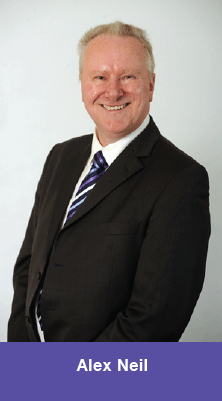 New research that examines Scotland’s attitudes towards alcohol has shown majority public support for the minimum unit pricing of alcohol, the Scottish government says.
New research that examines Scotland’s attitudes towards alcohol has shown majority public support for the minimum unit pricing of alcohol, the Scottish government says.
Around 1,500 people were surveyed on their attitudes to alcohol as part of the Scottish Social Attitudes Survey 2013.
84% of people agreed that alcohol caused either ‘a great deal’ or ‘quite a lot of harm’ in Scotland, with 93% of people stating that harmful drinking is a ‘very serious’ or ‘quite serious’ problem.
The results from the survey go on to show that 60% of adults in Scotland thought alcohol was the drug causing the most problems in Scotland – an increase of 14% from 2004.
When asked about minimum pricing, more people were in favour of the policy than were against, although the difference was relatively slight. 41% were in favour with 35% against. However, a sizeable proportion, 22%, had no strong view either way. Those against the idea were evenly split between those ‘somewhat against’ (18%) and those ‘strongly against’ it (17%). There was less certainty among those in favour of the policy; 26% of people were ‘somewhat in favour’ of the idea and 15% were ‘strongly in favour’ of it.
Around half of people thought that supermarkets sell too much alcohol at very cheap prices and 55 – 66% of adults surveyed thought that the suggested minimum prices that could be applied to beer, wine and vodka when minimum unit pricing is implemented were ‘about right’. Only 12% thought they were ‘too high’.
Health Secretary, Alex Neil, welcomed the results of the survey and said that they show an increasing need for continuing action to be taken on tackling Scotland’s difficult relationship with alcohol.
He said: “The fact that more than 8 out of 10 people surveyed thought that alcohol causes considerable harm in Scotland shows there is an increasing need to bring in measures that can tackle these issues.
“The evidence shows that introducing a minimum unit price for alcohol would be an effective way to tackle the availability of high-strength cheap alcohol – the type that causes the most problems in Scotland.
“It’s encouraging that the majority of people who expressed a view also see that minimum unit pricing would be an important tool in rebalancing Scotland’s relationship with alcohol. Half of people think that supermarkets sell alcohol far too cheaply and an even greater number, two thirds, think that, once minimum unit pricing is introduced, alcohol prices will be about right.
“This is a strong indication that the Scottish public support our policy for a minimum unit price, and recognise that we have a significant problem with alcohol that needs urgent action to tackle.”
Further findings from the Scottish Social Attitudes Survey show a continued lack of awareness of the number of units in alcoholic drinks, with around half of people being unable to identify the number of units in a pint of beer, measure of spirits or glass of wine. Only 18% of people could correctly name the number of units in a bottle of wine.
Only one in five people knew that the correct minimum number of alcohol free days per week – as recommended by health experts – was two.
In addition, most people disapproved of excessive drinking, with only 19% agreeing that getting drunk is a perfectly acceptable thing to do on weekends.
However around a third of people didn’t see binge drinking as a serious problem, even though 93% of people thought harmful drinking was a serious issue.
Scottish Government to reduce drink-drive limit
The Scottish Government will reduce the drink-drive limit following a consultation in which 74% of those who responded backed a cut.
Almost nine in 10 of those who endorsed the change agreed with the Scottish Government’s proposal to lower the blood-alcohol limit from 80mg of alcohol in 100ml of blood to 50mg of alcohol in 100ml of blood. This is likely to mean that Scotland and England will have different drink-drive limits.
Justice Secretary Kenny MacAskill said the consultation response allowed the government to move to formal discussions with the police and with the UK Government on the recalibration and testing of drink-drive enforcement devices to ensure that prosecutions were as robust as possible.
“Before a lower limit is introduced we will also consider issues such as how motorists driving into Scotland from England will be made aware of the lower limit,” he added.
Over the limit
The Scottish BMA welcomed the news and said the move could prevent up to 30 deaths a year. Charles Saunders, BMA Scottish Council Joint Deputy Chair, said: “Doctors see and treat the tragic consequences of avoidable road accidents caused by drink-driving and therefore believe there is no excuse for keeping the level at 80mg.
“Almost every European country has a 50mg or lower limit and we are happy that Scotland will now be following this lead.”
Edinburgh Police Surgeon George Fernie, a member of the BMA Scottish Council, said that witnessing the needless harm caused by drink-driving reinforced the need for a reduction in limits.
“It is clear that the message of ‘don’t drink and drive’ is not getting through to everyone and I hope new laws in Scotland will help reduce the number of cases I see,” he said.
No date has yet been set for implementation of the change.
New study shows drinking alcohol, even light-to-moderate amounts, provides no heart health benefit
Results
call into question previous studies suggesting one drink per day may promote
cardiovascular health
Reducing the amount of alcoholic beverages
consumed, even for light-to-moderate drinkers, may improve cardiovascular
health, including a reduced risk of coronary heart disease, lower body mass
index (BMI) and blood pressure, according to a new multi-centre study published
in the British Medical Journal and
co-led by the Perelman School of Medicine at the
University of Pennsylvania.
The latest findings call into question a host
of previous studies, which suggest that consuming light-to-moderate amounts of
alcohol (0.6-0.8 fluid ounces/day) may have a protective effect on
cardiovascular health.
The new research reviewed evidence from more
than 50 studies that linked drinking habits and cardiovascular health for over
260,000 people.
Researchers found that individuals who carry a
specific gene, which typically leads to lower alcohol consumption over time,
have, on average, superior cardiovascular health records. Specifically, the
results show that individuals who consume 17% less alcohol per week have on
average a 10% reduced risk of coronary heart disease, lower blood pressure and
a lower Body Mass Index.
“These new results are critically important to
our understanding of how alcohol affects heart disease. Contrary to what
earlier reports have shown, it now appears that any exposure to alcohol has a
negative impact upon heart health,” says co-lead author Michael Holmes, MD,
PhD, research assistant Professor in the Department of Transplant Surgery at
the Perelman School of Medicine at the University of Pennsylvania. “For some
time, observational studies have suggested that only heavy drinking was
detrimental to cardiovascular health, and that light consumption may actually
be beneficial.
“This has led some people to drink moderately
based on the belief that it would lower their risk of heart disease. However,
what we’re seeing with this new study, which uses an investigative approach
similar to a randomized clinical trial, is that reduced consumption of alcohol,
even for light-to-moderate drinkers, may lead to improved cardiovascular
health.”
In the new study, researchers examined the
cardiovascular health of individuals who carry a genetic variant of the
‘alcohol dehydrogenase 1B’ gene, which is known to break down alcohol at a
quicker pace. This rapid breakdown causes unpleasant symptoms including nausea
and facial flushing, and has been found to lead to lower levels of alcohol
consumption over time. By using this genetic marker as an indicator of lower
alcohol consumption, the research team was able to identify links between these
individuals and improved cardiovascular health.
However, commentators urged caution in
interpreting the results of the study. An editorial in the British Medical
Journal suggested that the researchers’ conclusions rested on questionable
assumptions. They assumed that individuals with the genetic variant would have
had identical cardiovascular risk even without it, and they assumed that
possession of the variant had no effect on cardiovascular disease besides
effects mediated by drinking. There were also the difficulties that also affect
other studies arising from the study relying on possibly inaccurate
self-reported alcohol consumption.
Dr Shannon Amoils, Senior Research Advisor to
the British Heart Foundation, which helped fund the study, said: “Studies
into alcohol consumption are fraught with difficulty in part because they rely
on people giving accurate accounts of their drinking habits. ….The results
reinforce the view that small to moderate amounts of alcohol may not be healthy
for the heart although the study would need to be repeated in a larger group of
people for definitive results.
“Whilst the heart health effects of light to
moderate alcohol consumption are still unclear, what is clear is that drinking
more than the recommended limits of alcohol can have a harmful effect on the
heart.”
Nurses debate whether drunks should be in A&E departments
Whether Accident and Emergency Departments are the best location to treat people under the influence of alcohol came up for debate at the 2014 Annual Congress of the Royal College of Nursing.
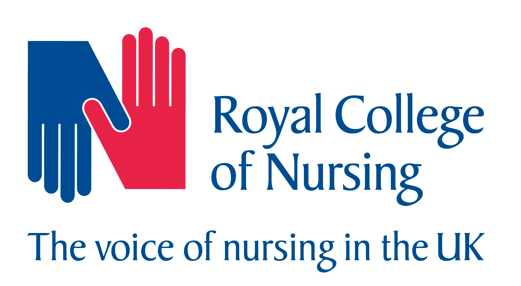 In 2013, the London Ambulance Service responded to 72,000 incidents involving patients who were intoxicated. Anthony McGeown, from the Greater Glasgow branch of the RCN, asked Congress whether A&E was the appropriate location for the care of those under the influence of alcohol. Prime Minister, David Cameron had suggested the use of ‘drunk tanks‘ – similar to those used in the United States – and the Association of Chief Police Officers (ACPO) had made a similar suggestion. Other alternatives include the use of street clinics – helping ‘at the source’ without the need for hospital admission or arrest.
In 2013, the London Ambulance Service responded to 72,000 incidents involving patients who were intoxicated. Anthony McGeown, from the Greater Glasgow branch of the RCN, asked Congress whether A&E was the appropriate location for the care of those under the influence of alcohol. Prime Minister, David Cameron had suggested the use of ‘drunk tanks‘ – similar to those used in the United States – and the Association of Chief Police Officers (ACPO) had made a similar suggestion. Other alternatives include the use of street clinics – helping ‘at the source’ without the need for hospital admission or arrest.
Owem Otong, RCN Northern Ireland member, argued that alcohol intoxication is not an accident. With services under immense pressure, patients in corridors and the NHS under financial burden, he suggested that those who were intoxicated be moved to another area, keeping A&E free for accidents only.
However, many speakers stressed that patients required triage* help to determine whether a head injury has been sustained or whether, for example, a patient had diabetes. Speakers were concerned about the quality of care that would be given if a patient was not in A&E.
The debate identified that people drink for many reasons: the elderly, in loneliness; the young, out of curiosity and the ‘risk factor’. Speakers suggested there should be more funding to help discover why people drink, for dealing with the illness and encouraging sensible drinking rather than treating the after effects.
* triage is defined in Segen’s Medical Dictionary (© 2012 Farlex, Inc., all rights reserved) as “the method of sorting of patients in A&E according to urgency”.
London’s drunks costing ambulances and A&Es £60m a year
Greater London Conservatives call for tough action against ‘bingers’.
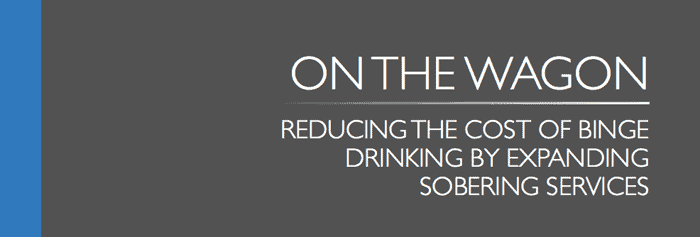
Binge drinkers are costing emergency response services over £60m every year. New figures obtained under a Freedom of Information Act reveal London’s Ambulance Service is spending £16m a year on responding to and treating drunks. In addition, the capital is spending at least £45m on ‘binge drinkers’ needing emergency hospital admissions. Admissions relating to alcohol in London’s hospitals have tripled in the last decade – from 56k in 2002 to 156k in 2011 – burdening the capital’s doctors and nurses.
These are among the findings presented by Greater London Conservatives in a new report, On The Wagon. The report calls for Parliament to double drunk fines to £180 and to target those who repeatedly abuse public services. However, the report’s recommendations ignore issues relating to the role of cheap alcohol or of selling practices which encourage excessive consumption of alcohol.
GLA Conservative London Assembly Member, and author of the report, Tony Arbour said:
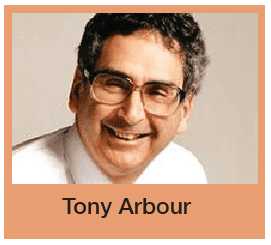 “Many people like a tipple but our public services should not be catering for bingers who can’t handle their drink. Our ambulances, prison cells and A&Es are designed for medical emergencies or dangerous criminals, yet we are seeing London’s drunks hogging these services, costing the capital millions of pounds. We need to deter this behaviour by doubling fines for drunkenness to £180 and hitting those who repeatedly abuse our health services, many of whom are currently getting off scot-free. The cash raised could fund targeted support and guidance for repeat offenders. The Mayor of London needs to lobby Parliament to make this happen and I’ll be urging him to do so.”
“Many people like a tipple but our public services should not be catering for bingers who can’t handle their drink. Our ambulances, prison cells and A&Es are designed for medical emergencies or dangerous criminals, yet we are seeing London’s drunks hogging these services, costing the capital millions of pounds. We need to deter this behaviour by doubling fines for drunkenness to £180 and hitting those who repeatedly abuse our health services, many of whom are currently getting off scot-free. The cash raised could fund targeted support and guidance for repeat offenders. The Mayor of London needs to lobby Parliament to make this happen and I’ll be urging him to do so.”
The report also calls for Sobering Centres and Booze Buses – manned by nurses – to operate on London’s “troubled high streets” all year round. This is in contrast to the current situation in the capital, where there are no more Sobering Centres – the only one in the entire city (which was located in Westminster) closed recently – and just one remaining Booze Bus operating on a seasonal basis.
Tony Arbour said: “As well as deterring this behaviour, we need to deal with drunks in a more appropriate way. Purpose-built Sobering Centres and Booze Buses, manned by nurses, can provide low-level treatment such as blood pressure and blood sugar checks as well as a bed for the night. This will deliver significant savings by freeing up prison cells and emergency rooms for London’s real problems.”
Dry January a great success – Alcohol Concern
Alcohol Concern are claiming their Dry January 2014 campaign to have been a huge success, with 17,312 people signing up – a 400% increase from 2013.
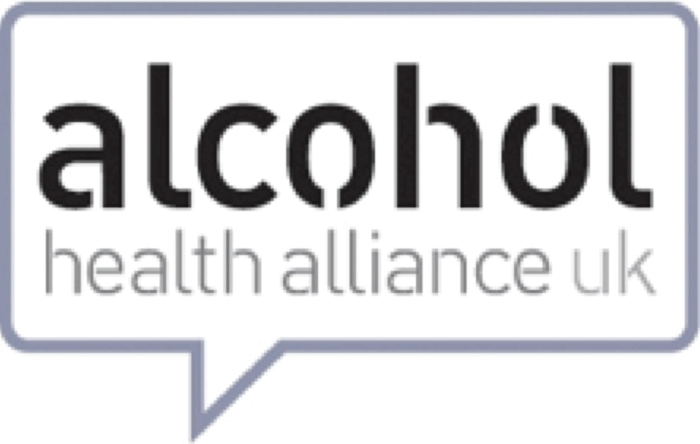 Dry January is a campaign challenging people to give up alcohol for a month and, according to the charity, 56% of those signing up in 2014 completed the full 31 days without alcohol, and additionally, a quarter of participants completed the month without alcohol, except for one or two occasions, which were often associated with a specific event.
Dry January is a campaign challenging people to give up alcohol for a month and, according to the charity, 56% of those signing up in 2014 completed the full 31 days without alcohol, and additionally, a quarter of participants completed the month without alcohol, except for one or two occasions, which were often associated with a specific event.
Based on their alcohol intake before starting Dry January, participants were put into risk categories; low risk, increasing risk, high risk, and possible dependency. Information on the proportions of participants in each category is not provided, but Alcohol Concern says that the benefits of the one month alcohol-free campaign were felt by participants across all risk categories with those in the increasing risk category noticing they’d lost weight, were sleeping better and had more energy. Those with a lower risk of drinking felt they benefited more by saving money and feeling accomplished but would also look to break weekend drinking habits.
The majority of participants also intended to reduce or stop their alcohol consumption as a result of doing Dry January, with evidence suggesting that, three months after participating in the challenge, the group of individuals had achieved and sustained a reduction in their alcohol consumption and felt more confident to refuse alcohol in social settings.
Dr Richard De Visser, Senior Lecturer at the University of Sussex, said: “Early indications show that taking part in Dry January helps people to turn down alcohol in social situations, giving them the confidence not to give in under peer pressure on a night out.”
Emily Robinson, Director of Campaigns at Alcohol Concern, said: “It’s fantastic to see the campaign has inspired changes in people’s drinking behaviour and that participants have achieved and continued a healthy reduction in their alcohol consumption.
“Dry January is all about helping people think about their drinking, and to support them in breaking any bad habits. We’re incredibly proud to have supported those who have cut down their alcohol intake and now feel confident to go out and not drink.”
The University of Sussex is compiling an independent study on the effectiveness of Dry January, to be published in November 2014.
Irish Alcohol Diaries 2013: New figures reveal 75% of alcohol is consumed as part of binge session
New report ‘Alcohol Consumption in Ireland 2013: an analysis of a national alcohol diary survey‘ released.
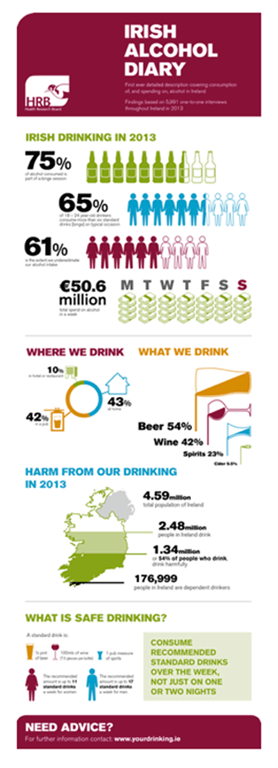 New figures published by the Health Research Board of Ireland confirm that Irish drinking patterns are harmful and almost one in 14 drinkers meet criteria for dependent drinking. The figures were captured as part of the first National Alcohol Diary Survey involving almost 6,000 people, aged 18-75 years, across Ireland during 2013.
New figures published by the Health Research Board of Ireland confirm that Irish drinking patterns are harmful and almost one in 14 drinkers meet criteria for dependent drinking. The figures were captured as part of the first National Alcohol Diary Survey involving almost 6,000 people, aged 18-75 years, across Ireland during 2013.
According to Dr Graham Love, Chief Executive at the Health Research Board: “The amount we drink and the way we drink determine alcohol-related harm. We are still consuming alcohol far above the… recommended low-risk levels. But what this report really shines a light on is the pattern of harmful drinking which raises serious concerns for public health. Based on the figures in the report, more than 150,000 people are dependent drinkers, more than 1.35 million are harmful drinkers and 30% of people interviewed say that they experienced some form of harm as a result of their own drinking. The report also reveals we underestimate what we drink by about 60%. If this is the case, the situation is much worse than what has been presented in this report”.
Headline findings
- 75% of all alcohol consumed was as part of a binge drinking session
- One in five (21.1%) drinkers engaged in binge drinking at least once a week
- Almost two thirds (64.3%) of 18-24 year old drinkers who participated in the survey consumed six or more standard drinks* on a typical drinking session in the last year, for example, three or more pints of beer, six or more pub measures of spirits or more than 600mls of wine (a regular bottle is 750mls)
- More than half (54%) of 18-75 year old drinkers were classified as harmful drinkers, which equates to 1.35 million harmful drinkers in Ireland
- One third (33%) of men and more than one fifth (23%) of women who consumed alcohol in the week prior to the survey consumed more than the Health & Safety Executive low risk drinking guidelines of up to 16.8 standard drinks for men and up to 11.2 standard drinks for women
- One in eight (13%) men and almost one in ten (9%) women drank their recommended weekly guidelines in one sitting in the week prior to the survey. Among 18-24 year-olds, 28% of men and 22% of women consume weekly guidelines in one sitting
- When figures are applied to the population of drinkers: more than €50.6 million was spent on alcohol in the week prior to the study; 3,230 work-or-study years were lost through alcohol-related illness in the year prior to the study
- In the week prior to the survey 43% of standard drinks were consumed at home, 42% in a pub/nightclub and 10% in restaurant or hotel
- 64% of men and 51% of women started drinking before the legal age of 18
- Monthly binge drinking was most common among 18-24 year old age group (at 60%)
- Harmful drinking is highest among the 18–24 year old age group (at 75%)
- Dependent drinking is highest among 18–24 year old age group (at 15%)
- 21% of 18–75 year-olds did not consume alcohol in previous 12 months.
“This is the first time we have had such robust, detailed evidence on Irish people’s drinking habits. What is clear is we need to alter people’s perceptions of their drinking. The report shows people who defined themselves as ‘light or moderate drinkers’ actually drank six or more standard drinks in a typical drinking occasion, which is binge drinking”, says Dr Jean Long, Head of the Evidence Centre at the Health Research Board and co-author of the report.
“Because it is considered normal behaviour to consume high quantities in a single session, people don’t realise they are drinking in a harmful way.”
Dr Deirdre Mongan, research officer at the HRB and co-author of the report says: “It is hoped that the recent Public Health Alcohol Bill, which includes an extensive range of evidence-based measures to deal with alcohol use, will help reduce overall consumption to low risk levels and tackle the harmful drinking patterns we are seeing in this report”.
Podcast
Our monthly podcast features interviews with experts from across the sector.
Gambling industry harms and parallels with the alcohol world
Will Prochaska –
Coalition to End Gambling Ads

